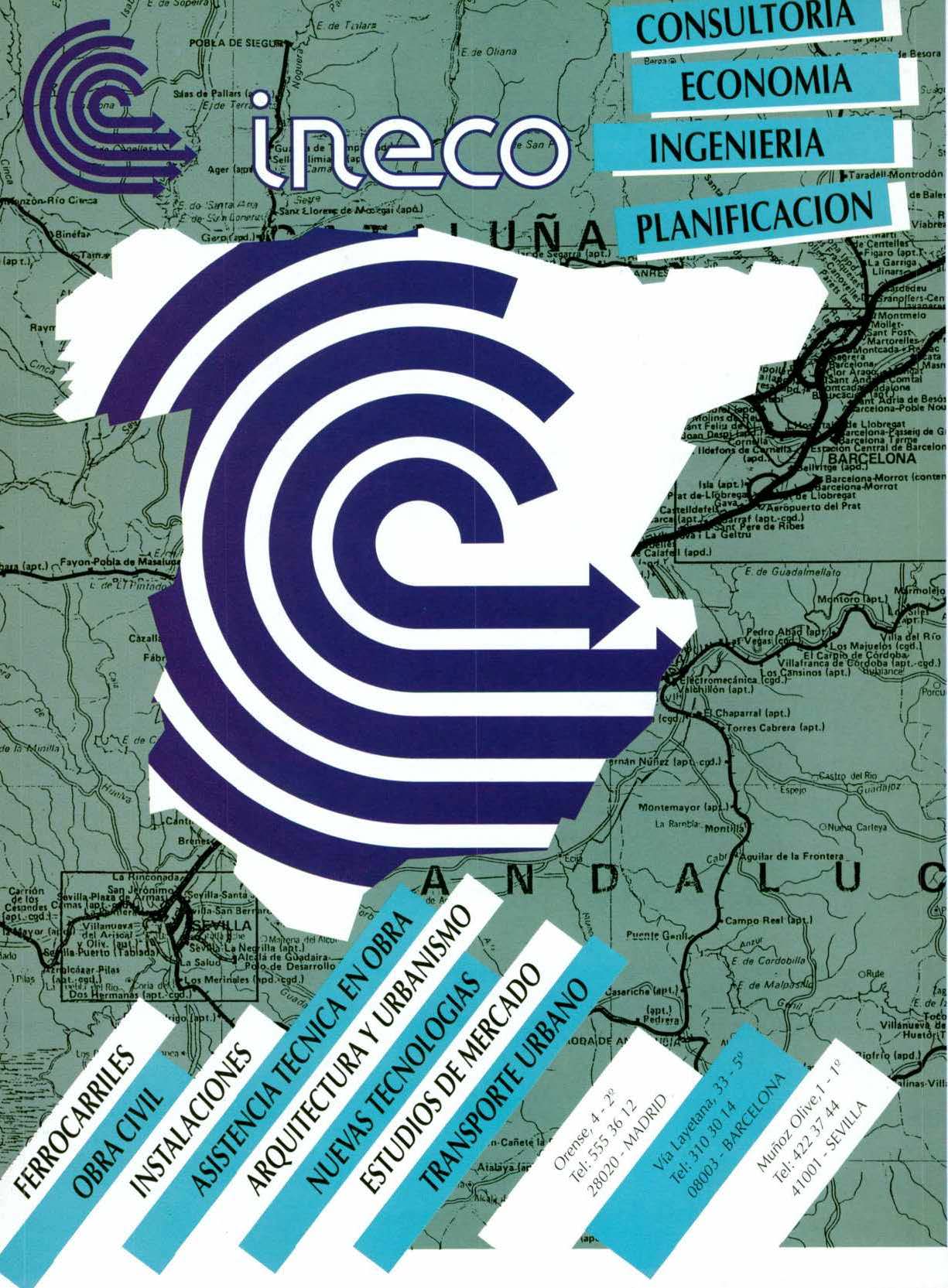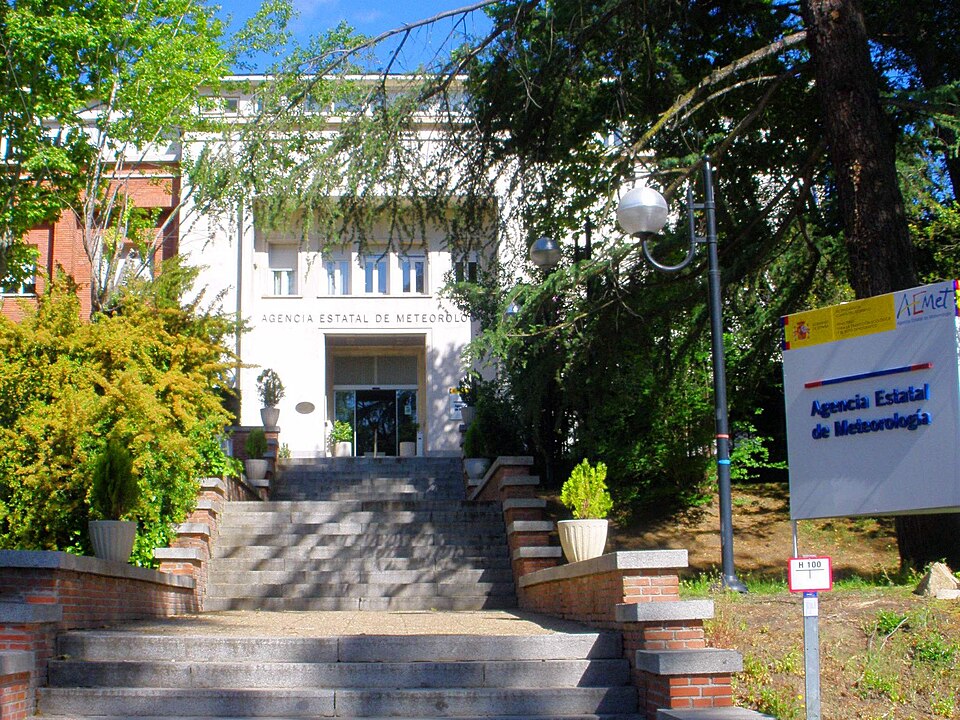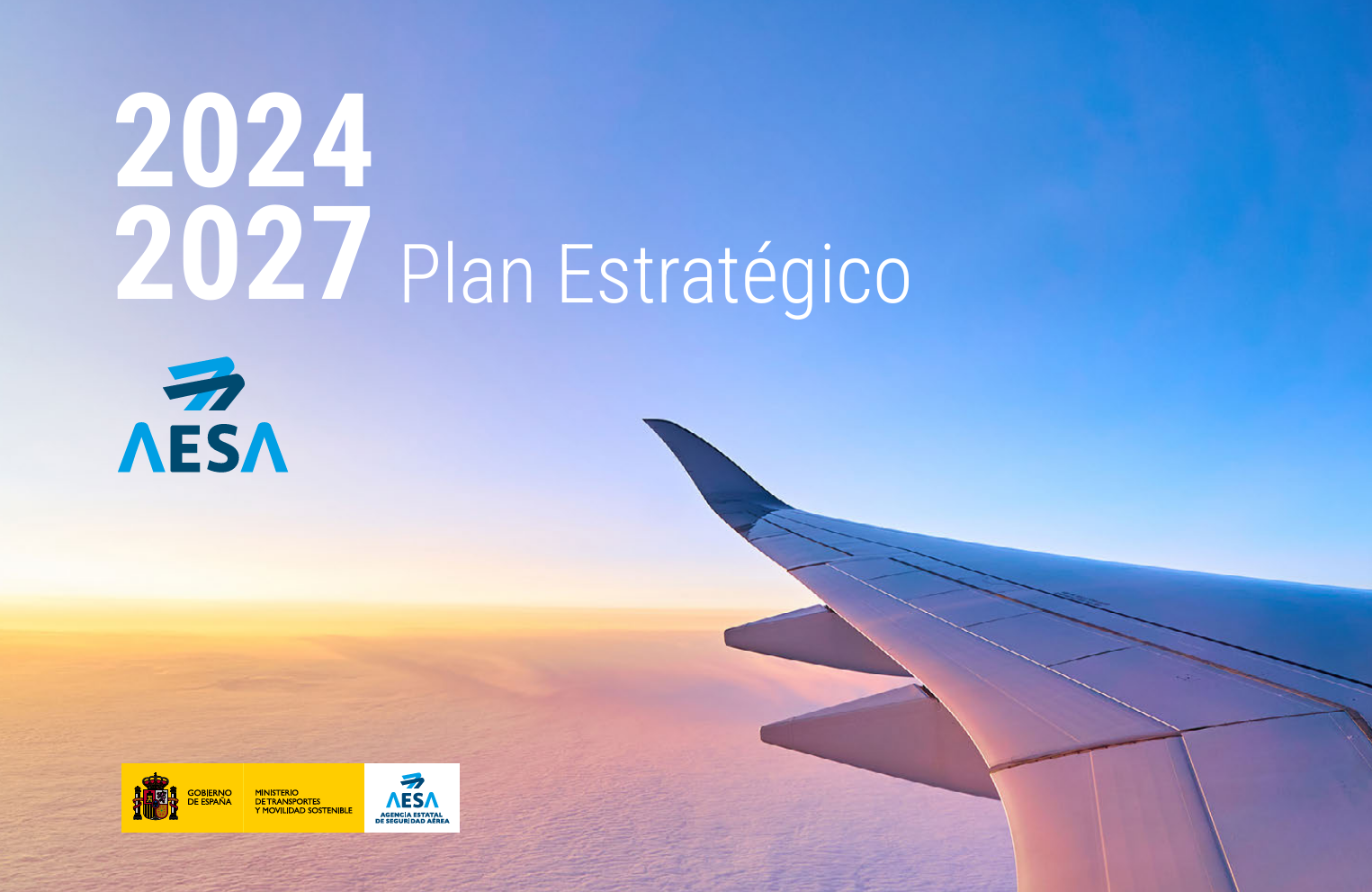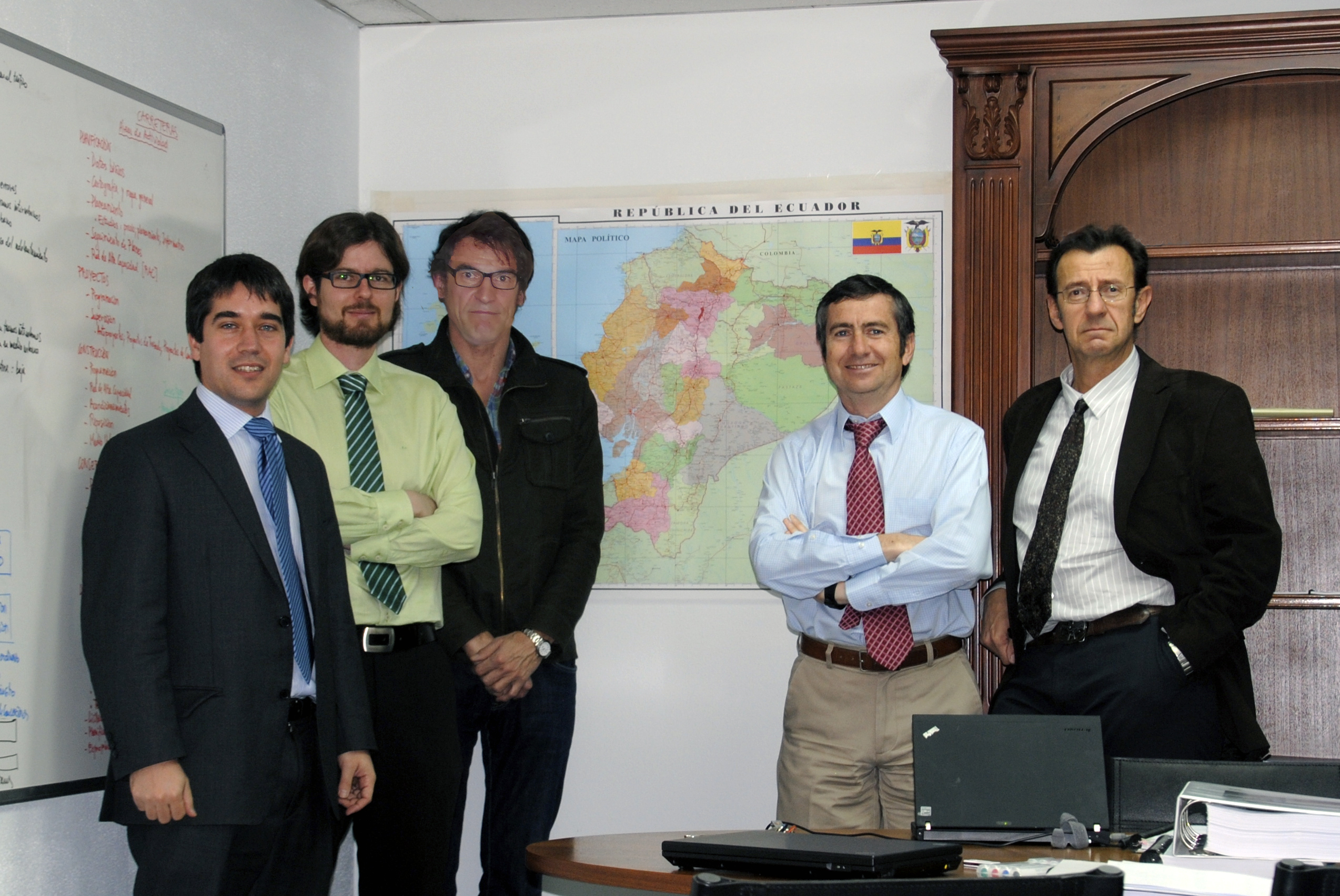01
We love it when plans come together

Ineco currently collaborates with around thirty public bodies on various consultancy projects: digital transformation, such as those commissioned for Justice or Health, the modernisation of the Administration. Also, the operational management of large projects, such as the technical offices of the Recovery, Transformation, and Resilience Plan (PRTR) or PERTE Chip and strategic consultancy, in which it reorients the structure, processes and key objectives of different public organisations.
These services allow the administration to optimise costs and resources, as well as to transform its processes, saving time and eliminating bottlenecks. And all this achieved with direct supervision and control of the work, ensuring neutrality and confidentiality and with the most cutting-edge technology, without being tied to a specific solution or methodology. The result is an organisational flexibility that provides greater capacity and agility in response than would be possible with internal resources.

Ineco began its activity in 1968 as a consultancy specialising in transport, a sector which still represents 66% of its activity today. The increase in engineering projects would come later, from 1984 onwards, when Renfe became the sole shareholder and transferred its project team to the company. Since then, the company has continued to grow and evolve, introducing new services and solutions. Today, the experience and cross-disciplinary capabilities gained in the transport sector are being applied in other areas of public services.
"This specialised type of consultancy with a national or international character did not exist to date in Spain on the specific subject of transport and can carry out all kinds of studies on the different fields of this sector of the economy". Juan de Arespacochaga, president of Ineco between 1969 and 1971, Vía Libre magazine, 1969.
Its status as a public company and a dedicated resource of the General State Administration since 2008 is a distinguishing feature that adds value through its understanding of the specificities and complexities of the public sector.
This aspect is particularly relevant when providing strategic consulting services which involve planning the future direction of an organisation, identifying its key areas of action, and determining the necessary changes in its size, structure, and processes.
With this view, Ineco has supported prominent public organizations in developing their strategic plans, including the State Aviation Safety Agency (AESA), the State Meteorological Agency (AEMET), the Railway Safety Agency (AESF), SEPES, the Public Business Entity for Land, and the State Secretariat for Digitization and Artificial intelligence.
For the latter, the company provides support in the monitoring and technological support of the National Artificial Intelligence Strategy (ENIA), the promotion of the National Neurotechnology Centre Consortium, the National Strategy for Quantum Technologies and the Digital Europe Programme. Likewise, the definition of synergies between the projects of the Technological Specialisation Networks (RETECH), the strategic monitoring of Digital Competences (Generation D) and advanced digital data technologies, among other initiatives. It also provides legal and technological support in cybersecurity.
In the case of state agencies, it has accompanied them in their organisational transformation processes, implementing improvements, supporting the coordination of internal working groups and offering assistance in strategic areas such as process re-engineering, new approach to services, change management, etc.
"The machinery of public sector organisations needs to be adjusted from time to time (...)Some business consultants are aware of the unique characteristics and needs related to working with administration, given the significant differences between consulting in the public sector and in the private sector.“Management consulting. A guide to the profession”, ILO, 1996-2002

A representative example is AESA, the agency of the Ministry of Transport and Sustainable Mobility in charge of civil aviation enforcement in Spain. The process began with a detailed diagnosis of the current situation. Both internal processes were analysed, involving the organisation at all levels, as well as the expectations and perspectives of the sector and key industry players on AESA's services.
As a result, 47 improvement actions were defined, grouped into nine objectives and two strategic lines, laying the foundations for the transformation of the entity, as set out in its new Strategic Plan 2024-2027, presented in February 2024. This renewed effort has been reflected in key processes within the public services provided by AESA, such as the management of licenses for aviation personnel, the regulation of aeronautical easements, and the handling of passenger complaints.
"Ineco is a public company that works for the administration in pursuit of the common goal of public interest. It is highly specialised in consultancy and has multidisciplinary staff with the ability to diagnose the aviation authority in order to optimise internal and external efficiency". State Aviation Safety Agency (AESA), 2025

Ineco's experience in strategic planning began in the field of transport in its early years, when it provided railway consultancy services in Latin America and Spain. It will later extend its national and international activity to other continents and all modes of transport.
Additionally, Ineco is providing support to the Agency in the development and approval process of its management contract for the 2025-2028 period. According to Law 40/2015, this is the fundamental legal instrument that will define "the objectives to be pursued, the results to be achieved, and, in general, the management to be carried out" by the entity in the coming years.
Ineco has participated in the development of the master plans for Aena airports since 1997, as well as in the Airport Regulation Document (DORA) since 2014 (2021). Additionally, he has contributed to all major national and sectoral transportation strategies of the Spanish administration, including the 1987 Railway Transport Plan, various infrastructure and freight plans between 1993 and 2010, the PEIT (2005), the Infrastructure, Transport, and Housing Plan (PITVI, 2012), the National Smart Cities Plan (2016), the proposal for the Railway Gauge Strategy in Spain (2020), the Strategy for Safe, Sustainable, and Connected Mobility (2021), and the Indicative Railway Infrastructure Strategy (2022), among others.
In addition, it has carried out planning at the regional level (Cercanías-commuter trains- of de Madrid and Barcelona and Transport Master Plans for the Canary Islands, Balearic Islands, Murcia, Castilla y León and the Basque Country, in the 1970s and 1980s) and abroad, for countries such as Algeria, Morocco, Malaysia, Oman, Ecuador, Colombia, Costa Rica, Malta and Croatia.

02
Knowledge Workers

Helping companies and organisations of all kinds to adapt to change remains one of the main tasks of consultancy, which was born not in an office, but in the first big factories in the USA during the second Industrial Revolution at the end of the 19th century. In its origins, moreover, consultancy is linked to engineering. In fact, it is engineering professionals who are the first to observe how operators work and study how to increase and improve mass production, saving time and costs.
By then sharing their experiences and methods with other industrialists and, almost immediately, also with governments and all kinds of organisations that seek their advice, they become the first consultants. At the same time, the concept of the modern company began to develop, and with it the discipline of organisational management.
"Business consulting is an independent professional advisory service that helps managers and organizations achieve their goals and objectives. (...)Change agent' is another title frequently used for consultants. and they take pride in it … in an environment where continuous change is the only constant. And they take pride in it (…) in an environment where continuous change is the only constant. “Management consulting. A guide to the profession”, ILO, 1996-2002
The two world wars also stimulated demand for consultancy services from the public sector, as governments, most notably the US, sought the advice of experts from different disciplines to assist in the war effort. In Spain, public administration is currently the second largest demander of consultancy services after the financial sector, according to 2023 data from AEC, the sector's main association.
From the factories to the Big4

Bethelem steel plant in Pennsylvania in 1896. Photograph by William H. Rau, Library of the Congress, United States of America
Consulting and business management have "the same roots", as the ILO, the International Labour Organisation of the United Nations, points out. Thus, over the last 100 years, consultants have been responsible for disseminating the different trends and schools of thought that have emerged on how to manage organisations.
In the early days, the aim was to increase the output of the factories. This was the purpose of the recommendations of the first consultants, engineers such as the American Frederick Winslow Taylor, author of the first management best-seller, " The principles of scientific management", published in 1911, or Harrington Emerson, who, along the same lines as Taylor, called his recommendations "efficiency engineering". And it is not only businessmen and industrialists who seek his advice, but also governments such as those of Mexico, China, Japan, Peru, Poland and the Soviet Union.

Bethelem Steel Company poster encouraging its workers to help in the war effort during WWII. Photo: public domain
Taylor's book recounted his experiences, first in a small machine factory, and from 1898, as a consultant to the largest steel mill in the country (and the world at that time), the legendary Bethelem Steel Company, which boosted its steel production following his advice. And although his method did not consider what we now call "human factors", the impact of his proposal on the business and industrial world was enormous.
This was also the birth of business management, which would later develop and evolve with the first university business schools around 1900 (New York, Harvard).
Demand drives professionalisation and the first Demand drives professionalisation and the two consulting firms as such (and still active) are born in 1914. The one founded by chemist Arthur D. Little, and the Booz Allen Hamilton. Today's large consulting firms were born in the interwar period when, in 1926, a professor of accounting at the University of Chicago, James O. MacKinsey, founds his company, from which, after his death, another branch is spun off and named after his senior partner, A.T. Kearney. Also in 1926, the French-born American Charles E. Bedoux opened an office of his firm in London, although he did not survive World War II. The 30s and 40s saw the emergence of specialist human resources consultancies such as William Mercer, Hay Group and others.
From the 60s onwards, large companies set up in Europe. The following two decades saw numerous mergers and restructurings in the sector, which diversified its activities beyond the search for efficiency to include accounting auditing, legal and tax consultancy and new technologies. In the last years of the 20th century and the beginning of the next, the number of large consulting firms was reduced from eight to five and then to four, the so-called the “Big Four”: Deloitte, PricewaterhouseCoopers, KPMG and EY.

03
Bye, paper, bye
It is easier and quicker to obtain Spanish nationality or get a higher degree recognised, to provide accurate information to health professionals to improve medical care, to appear in court without leaving home, apply for a grant or check your employment history from anywhere and with your mobile phone. And all of this through secure, cyber-attack-proof services and platforms.
These are just some of the improvements in public services that citizens will perceive, or are already perceiving, and in which Ineco is currently collaborating with the public administration, at the same time as supporting it in its own digital transformation process to become more efficient, transparent and technologically robust.
"The challenge of innovation in public administrations can be redefined as the ability to create value by doing things differently and even doing radically new things. A public administration that intends to innovate must rethink its processes (...) with a quality management perspective, aimed at providing citizens with a more convenient and agile relationship and increasing the capacity of public services". Joaquín Ruiz and Eloy Cuéllar, "La gestión de calidad en las administraciones públicas españolas. Balance y perspectivas", 2014
Thus, among the digital consultancy services that the company currently provides, those related to the modernisation of the administration of justice stand out, a profound reform that is not only technological, but also organisational and procedural, as set out in the Justice 2030 Plan. The company brings to this major state project more than 500 professionals from different specialities, who have been working since 2016 for the Ministry of the Presidency, Justice and Relations with the Courts on a wide range of innovative projects. Among others, digitalisation of services, cybersecurity, digital identity, platforms and applications for citizens, such as Carpeta Justicia and SIRAJ (System of Administrative Registers to Support the Administration of Justice) or robotisation of certain documentary processes.

Imagen 1, ImagenAnother major project is the creation of a National Health Data Space or health data lake (mass cloud storage of data in all types of formats) for the Ministry of Health and the State Agency for Digital Administration, AEAD (formerly the General Secretariat for Digital Administration). Big data techniques will make it possible to analyse and retrieve information from multiple databases from all the autonomous communities, for medical research and the design of more efficient public health policies.
Ineco also provides technical support to the AEAD in the modernisation of the entire public sector, in initiatives derived from the different measures of the Public Administration Digitalisation Plan 2021-2025. It is a broad programme that includes cross-cutting services, meaning those common to different areas and levels of administration. Additionally, it encompasses analysis and consulting services for the implementation of a Cybersecurity Operations Center for municipalities with populations under 50,000.
Digitalisation also offers tools to speed up two procedures of great importance for a large group of citizens and which generate a large volume of applications: obtaining Spanish nationality by residence and civil status, which exceeds 200,000 each year, and the recognition of higher degrees obtained abroad. In the first case, the average processing time has already been reduced to less than 365 days.
The second case is a recent project for the General Secretariat for Universities of the Ministry of Science, Innovation and Universities, which includes consultancy and process re-engineering, automation of manual tasks and the design of a new IT system that is more agile and robust than the current one, as well as providing a short-term reinforcement team.
Ineco has been present from the beginning in the digitalisation process of the Spanish public administration: in 2000, and until 2002, it provided consultancy and technical assistance services to the public entity Retevisión for the implementation of advanced telecommunications networks and services.
04
Solutions in action

In Europe as a whole, the public sector grew the most in demand for consultancy services (22.9%) in 2023, "is boosted by the request for a consulting support in launching and managing the Recovery Funds related initiatives points out.
Ineco's operational consultancy services fall into this category and consist of the deployment of the human and technical resources necessary to carry out specialised management tasks for a specific period, always in close collaboration with the corresponding public body.
These resources are articulated through technical offices, such as those of the Recovery, Transformation and Resilience Plan (PRTR). A team of more than 170 people has been working since 2021 for the Ministry of Transport and the Ministry of Sustainable Mobility and Ecological Transition on projects financed with European Next Generation funds.
Within the PRTR, the larger projects are grouped into 13 specific programmes called PERTEs (national strategic plans), such as the PERTE CHIP, for which Ineco is also in charge.

On the left, participants at the launch meeting of the future IMEC centre in Malaga on March 12th, with a 300 mm chip wafer like the ones that will be manufactured by the centre (in detail on the right). Photo: Ineco/IMEC
Over its more than 55 years of experience, the company has provided operational services for major projects related to transportation. These include airport expansion initiatives launched in the late 1990s, such as the Acoustic Insulation Plans offices at Madrid-Barajas and Málaga airports, as well as acoustic insulation works at both Madrid-Barajas and Málaga airports. Additionally, the company has been involved in the Madrid T4 and Barcelona T1 operational transition offices. Since 2013, it has also contributed to the National Transport Observatory, which served as a model for a similar initiative in Brazil.
Abroad, it is currently acting for the Costa Rican government as the "executing unit" for the national transport infrastructure improvement plans (PIT and PIAV), which involves administrative, technical, legal and environmental management of a large number of road and port projects throughout the country.






